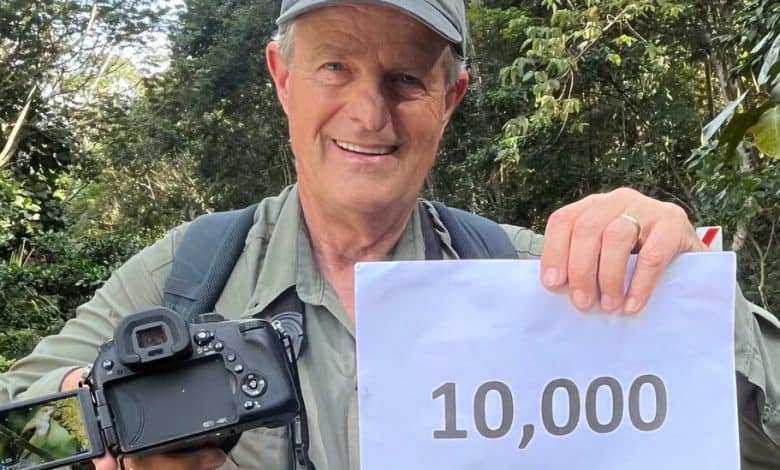With an Orange-Tufted Spiderhunter, Birder Breaks Record for Sightings

On Feb. 9, Peter Kaestner stood in the shadow of majestic Tinuy-an Falls on the Philippine island of Mindanao, on the cusp of a record he’d spent seven decades chasing and worried that he’d arrived too late.
For years, nobody alive had seen and identified more bird species than Mr. Kaestner. A retired American diplomat, he is birding’s ultimate “big lister,” a star of the small but growing subculture of hypercompetitive bird watchers who scour the globevying to see as many species as possible.
An obsessive birder since childhood, Mr. Kaestner woke up that morning in February with 9,997 birds on his personal “life list” — more than 90 percent of Earth’s scientifically recognized species and three away from a singular milestone. But he felt hurried. A few weeks earlier, in an essay for the American Birding Association, he had outlined his plans to become the first person to document 10,000 sightings; shortly after, new information forced him to expedite his plans.
“I realized when I was writing it that I was putting a target on my back,” Mr. Kaestner said from his home in Cockeysville, Md.
He didn’t waste time. Mr. Kaestner spent a chunk of January in Taiwan, racking up 15 new bird sightings. Soon he was in the Philippines, squeezing in an extra trip to the archipelago before another he had planned for March. Working with a local guide, Mr. Kaestner needed to see 19 new birds in seven days to reach 10,000. By midafternoon on Feb. 9, he had reached 9,999 when they heard an unfamiliar call coming from a nearby heliconia thicket.
When the bird appeared, Mr. Kaestner had no doubt about what it was: an orange-tufted spiderhunter, a banana-loving songbird with a sinisterly down-curved bill. Documenting the sighting with a photograph made Mr. Kaestner the first birder to reach 10,000 species, a momentous achievement once considered unreachable. “The number of people that helped over the years was extraordinary,” Mr. Kaestner said.
